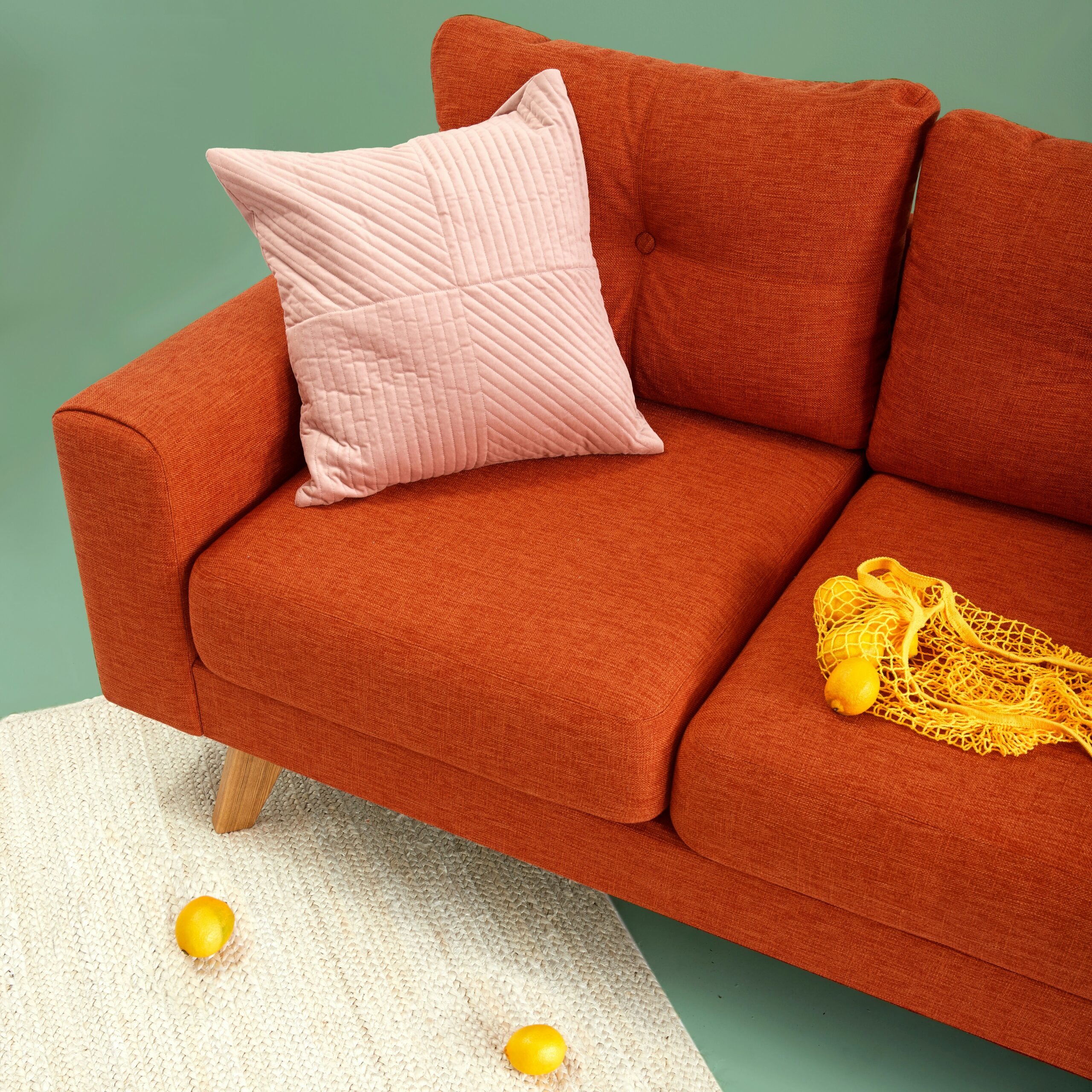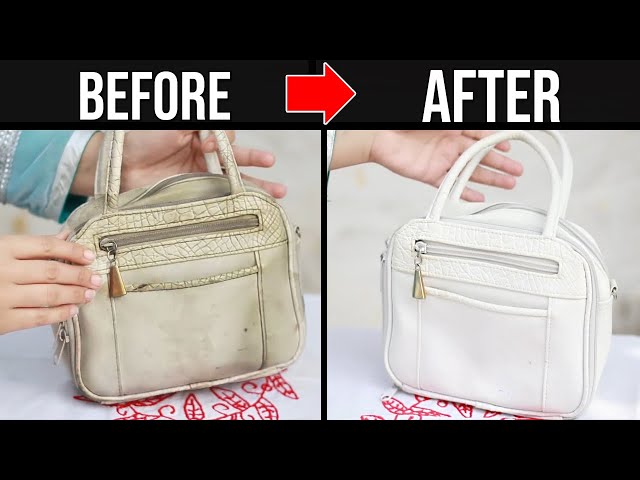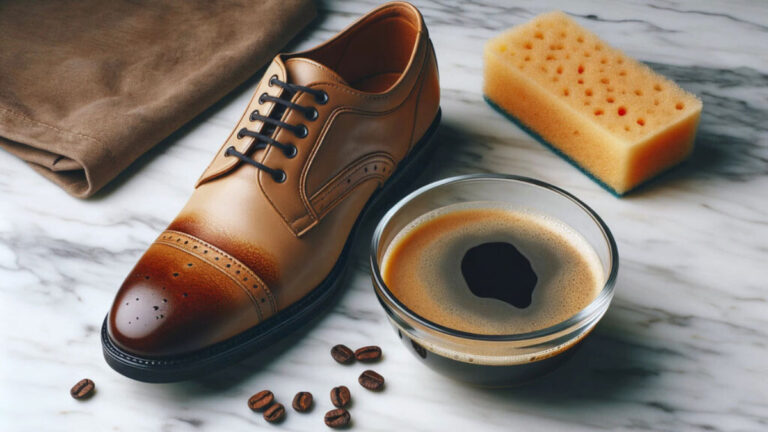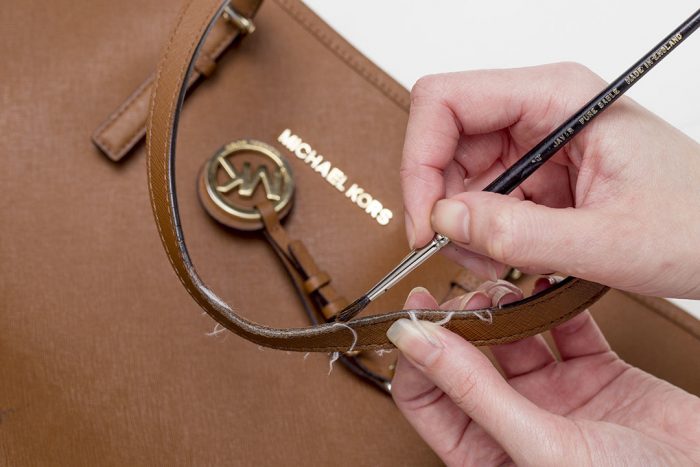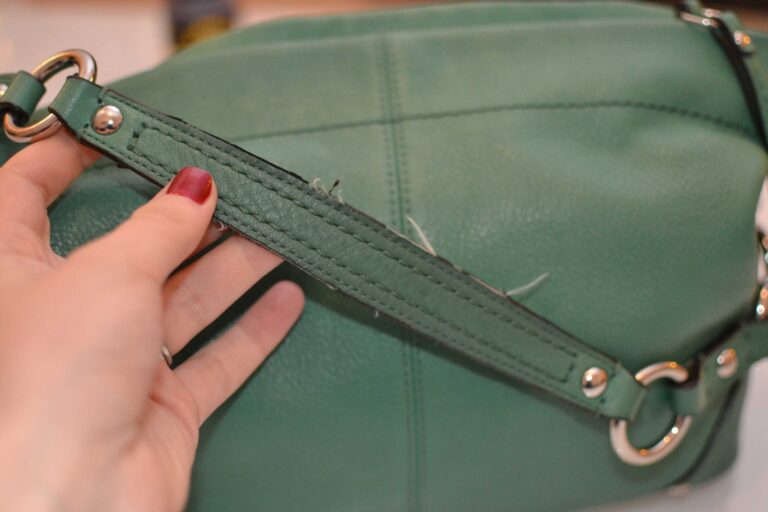Freshen Up Your Living Room: How to Remove Smell from Leather Sofa
Leather Odor Removal Methods
Removing odors from a leather sofa can be a challenging task. Fortunately, there are both natural remedies and commercial products that can help. Here, you will learn about effective methods for eliminating unpleasant smells.
Natural Remedies for Leather Odors
Natural remedies are a great option for those who prefer eco-friendly solutions. These methods are usually cost-effective and utilize household items to remove odors from leather.
Olive Oil and Vinegar Mix
One effective DIY solution involves mixing a quarter cup of olive oil with half a cup of distilled white vinegar. This mixture can be applied to the leather to clean and condition it (End of Tenancy London).
- Mix 1/4 cup olive oil with 1/2 cup distilled white vinegar.
- Apply the solution to the leather surface.
- Wipe down the leather with a dry cloth for conditioning.
White Vinegar and Linseed Oil
For a thorough cleaning and conditioning, white vinegar combined with linseed oil is an excellent option. Linseed oil helps protect the leather (End of Tenancy London).
- Mix equal parts of white vinegar and linseed oil.
- Apply the mixture using a soft cloth.
- Gently rub the leather surface, focusing on odor-affected areas.
Commercial Products for Odor Removal
If natural remedies do not suffice, commercial products can provide a more robust solution for eliminating odors from your leather sofa. These products are specifically designed to treat leather without causing damage.
Leather Cleaners
Leather cleaners are formulated to clean and deodorize leather surfaces. Some popular options include:
| Product Name | Key Feature | Price Range |
|---|---|---|
| Leather Honey | Deep Cleaning | $20 – $30 |
| Chemical Guys Spray | pH Balanced Formula | $10 – $15 |
| Lexol Leather Cleaner | Non-Toxic Ingredients | $15 – $20 |
Odor Eliminators
Odor eliminators are specifically targeted to remove stubborn smells such as mildew, smoke, and pet odors. Options include:
| Product Name | Key Feature | Price Range |
|---|---|---|
| King County Odor Removal | Enzyme-Based Formula | $15 – $25 |
| ZORBX Unscented | Safe for All Surfaces | $10 – $20 |
| Meguiar’s Air Re-Fresher | Car Odor Treatment | $10 – $15 |
For detailed information on tackling specific odors, check our guides on how to remove urine smell from leather couch and how to remove smoke smell from leather couch.
Conclusion
Managing leather odors effectively requires the use of either natural remedies or specialized commercial products. To ensure the longevity of your leather sofa, follow our tips and incorporate regular maintenance routines. For more advice, consider reading our why does leather crack and peel or how to soften hard leather.
Cleaning Leather for Odor Removal
When tackling leather odors on your sofa, it’s important to use effective cleaning methods and suitable tools. This section covers the best solutions and tools to help you achieve a fresh-smelling leather sofa.
Leather Cleaning Solutions
Various cleaning solutions can be used to eliminate odors from leather. Both natural remedies and commercial products offer effective results. Let’s explore some options:
Natural Remedies:
Olive Oil and Vinegar:
Mix a quarter cup of olive oil with half a cup of distilled white vinegar. Apply this mixture to the leather and let it sit for a few minutes before wiping it off. This solution helps clean and condition the leather (End of Tenancy London).
Cream of Tartar and Lemon Juice:
Combine cream of tartar and lemon juice to create a potent cleaning mixture for light-colored leather. This blend is effective at removing stains but should be avoided on darker leather due to its bleaching effect (End of Tenancy London).
Commercial Products:
Leather Honey Cleaner:
This product is suitable for deep cleaning and removing embedded odors. Leather Honey Cleaner is gentle on leather while effectively breaking down dirt and oils that can cause odors (Leather Honey).
Stanley Steemer Upholstery Cleaner:
Professional upholstery cleaning services like Stanley Steemer offer specialized cleaners that inspect and treat stains, ensuring your leather sofa is cleaned without damage.
| Cleaning Solution | Ingredient | Suitable For | Notes |
|---|---|---|---|
| Olive Oil & Vinegar | Olive Oil, Vinegar | All Leather | Cleaning & conditioning |
| Cream of Tartar & Lemon Juice | Cream of Tartar, Lemon Juice | Light Leather | Avoid on dark leather |
| Leather Honey Cleaner | Commercial | All Leather | Deep cleaning |
| Stanley Steemer Cleaner | Professional Service | All Leather | Safe for all types |
Choosing the Right Cleaning Tools
Selecting the appropriate tools is essential for effectively cleaning your leather sofa. Here are some recommended tools:
Microfiber Cloths:
- These cloths are ideal for gently cleaning leather surfaces without scratching. Microfiber is absorbent and efficient at picking up dirt and oils from the leather.
Soft-Bristle Brush:
- Use a soft-bristle brush to softly scrub the leather when applying cleaning solutions. This helps in lifting dirt and grime without damaging the leather.
Vacuum with Brush Attachment:
- A vacuum cleaner with a brush attachment can be used to remove loose dirt and debris from the leather surface before and after cleaning. This ensures a thorough clean.
Using a combination of these tools can enhance the effectiveness of your leather cleaning solutions. To maintain the freshness of your leather items, consider regular maintenance and proper storage techniques, as covered in how to store leather properly. For persistent odors, refer to our guide on how to remove smell from leather bag or how to remove smell from leather jacket.
By applying the right cleaning solutions and tools, you can effectively remove odors from your leather sofa and ensure it remains fresh and appealing. For specific odor issues like mildew or pet odors, additional targeted treatments may be required, which are covered in other sections of this guide.
Types of Leather Odors
Understanding the different types of smells that can affect your leather sofa is crucial for effective odor management. The scent of your leather furniture can vary based on several factors, including the tanning process used, the chemicals applied, and the type of leather.
Common Leather Odors
Leather odors often stem from various sources that it comes into contact with. Here are some of the most common odors you might encounter with your leather sofa:
| Odor Source | Characteristics |
|---|---|
| Natural Tanning | Rich, earthy, slightly sweet scent. (Mr. Lentz) |
| Chemical Tanning | Off-putting, sometimes harmful odor due to chemicals. (Mr. Lentz) |
| Body Oils & Sweat | Sour or musty smell generated from prolonged skin contact. |
| Smoke | Pungent, lingering odor from cigarettes or fire. (how to remove smoke smell from leather couch) |
| Food & Spills | Range of smells depending on the type of food or beverage spilled. |
| Mildew & Mold | Musty, earthy odor caused by excess moisture. (Eiken Shop) |
| Pets | Animal odors, urine, or dander can cause an unpleasant smell. (Leather Honey) |
Understanding Leather Porosity
The porosity of leather plays a significant role in how it absorbs odors. Genuine leather, in particular, is more delicate and absorbent compared to faux leather. Here are some key points to understand:
- Full-Grain Leather: This type is highly porous and more likely to absorb odors due to its natural, unaltered surface. (Eiken Shop)
- Top-Grain Leather: Slightly less porous than full-grain but still susceptible to odor absorption.
- Genuine Leather: More absorbent and likely to collect smells over time, requiring frequent maintenance.
- Faux Leather: Less porous, making it less likely to absorb odors but still requiring cleaning to maintain freshness.
Understanding the porosity of your leather furniture can help you determine the best methods for odor removal and maintenance. For more detailed information on how to tackle specific smells, visit our articles on how to remove smell from leather jacket, how to remove smell from leather shoes, and how to remove smell from leather car seats.
Internal Links for Further Reading
- how to repair peeling faux leather bag
- how to remove smell from leather bag
- how to remove odor from leather chair
- how to remove urine smell from leather couch
Essential Tables
| Type of Leather | Porosity Level | Odor Absorption |
|---|---|---|
| Full-Grain Leather | High | High |
| Top-Grain Leather | Medium | Medium |
| Genuine Leather | High | High |
| Faux Leather | Low | Low |
By understanding these factors, you can better manage and prevent unpleasant smells from affecting your prized leather furniture. For more tips on leather care, check out our guide on why does leather crack and peel and other related topics.
Preventing and Managing Leather Odors
For those wondering how to remove smell from leather sofa, it’s essential to prevent and manage leather odors effectively. By understanding proper storage techniques and maintaining the right air circulation and humidity control, you can keep your leather items, including sofas, fresh and odor-free.
Proper Storage Techniques
Proper storage in ideal conditions, with a balance in humidity and temperature, is crucial to prevent mold, mildew, and unpleasant odors in leather items. Here are some techniques to ensure your leather sofa stays fresh:
- Avoid Direct Sunlight: Store your leather items away from direct sunlight to prevent the leather from drying out and cracking.
- Use Well-Ventilated Areas: Keeping your leather sofa in a well-ventilated area helps to maintain its freshness and prevent any musty odors.
- Utilize Silica Gel Packets: Placing silica gel packets around your leather sofa can help absorb excess moisture, preventing musty smells (Eiken Shop).
- Avoid Plastic Bags: Do not store leather items in plastic bags, as this can trap moisture and lead to mold and mildew.
Air Circulation and Humidity Control
Maintaining the right air circulation and humidity levels is essential in managing odors from leather. Here are some tips to optimize air circulation and control humidity:
- Regular Air-Out: Air out your leather sofa regularly by opening windows or using fans to ensure constant air flow.
- Humidity Control: Maintain a balanced humidity level in your living space. Use a dehumidifier if necessary to prevent excessive moisture build-up.
- Balanced Temperature: Keep your home’s temperature within a comfortable range to prevent extreme conditions that can affect the leather’s quality.
| Factors | Recommendations |
|---|---|
| Sunlight | Avoid direct exposure |
| Ventilation | Store in a well-ventilated area |
| Humidity | Use silica gel packets, avoid plastic bags |
| Air Circulation | Regularly air out the space |
| Temperature | Maintain a balanced temperature |
For more tips on how to manage leather odors in various items, visit our articles on how to remove smell from leather bag, how to remove smell from leather jacket, and how to remove smell from leather shoes. These guidelines will help you maintain a fresh living environment with your leather furniture and other leather goods.
Addressing Specific Leather Odors
Leather items such as sofas can sometimes harbor unpleasant smells due to their porous nature. Addressing these specific odors effectively can help you maintain a fresh and inviting living space.
Mildew and Mold Odors
Mildew and mold can thrive in leather if it is stored in a damp or humid environment. These fungi release spores that cause a musty, unpleasant scent.
Steps to Remove Mildew and Mold Odors:
- Dry the Leather: Ensure the leather is completely dry before starting the cleaning process.
- Vacuum: Use a vacuum with a brush attachment to remove loose mold spores from the surface.
- Cleaning Solution: Mix equal parts of white vinegar and water. Vinegar is effective in killing mold spores without damaging the leather.
- Wipe Down: Dampen a cloth with the solution and gently wipe the affected areas.
- Allow to Dry: Let the leather air dry completely in a well-ventilated area.
- Condition: After cleaning, use a leather conditioner to restore moisture and prevent drying (Leather Honey).
Smoke and Pet Odors
Smoke and pet odors can become embedded in the pores of leather, making them particularly stubborn to remove.
Steps to Remove Smoke and Pet Odors:
- Baking Soda: Sprinkle baking soda generously over the leather surface. Baking soda is a natural deodorizer that can absorb odors from the leather.
- Let Sit: Allow the baking soda to sit on the leather overnight.
- Vacuum: Vacuum the baking soda off the next day using a brush attachment.
- Leather Cleaner: Use a leather-safe cleaner specifically designed for leather materials (Leather Honey).
- Optional – Charcoal: Place activated charcoal near the leather item to continue absorbing any lingering smells.
| Odor Type | Cleaning Agent | Additional Tool | Duration |
|---|---|---|---|
| Mildew & Mold | White vinegar & water | Vacuum with brush attachment | Overnight |
| Smoke & Pet | Baking soda | Activated charcoal (optional) | Overnight |
For more information on how to remove smoke smell from leather couch and how to remove urine smell from leather couch, you can explore our specialized guides.
By following these steps, you can effectively address mildew, mold, smoke, and pet odors in your leather items, ensuring they remain fresh and pleasant. Remember, maintaining proper storage and controlling humidity are key strategies for preventing odors from developing in the first place.
For regular maintenance advice and further tips, visit our article on regular maintenance tips.
Best Practices for Leather Odor Control
Regular Maintenance Tips
Maintaining a fresh, odor-free leather sofa involves consistent care and attention. Regular maintenance is essential to prevent unpleasant smells from accumulating. Here are some key tips:
- Vacuuming: Regularly vacuum your leather sofa to remove dust and debris. Use a soft brush attachment to avoid scratching the leather.
- Wiping Down: Use a damp cloth to wipe down the surface of the sofa. Avoid harsh chemicals that can damage the leather.
- Conditioning: Apply a leather conditioner every few months to keep the leather supple and reduce the likelihood of cracks. This is essential for those wondering why does leather crack and peel.
- Avoid Direct Sunlight: Exposure to direct sunlight can dry out leather and cause it to crack, which can lead to odors.
- Sofas in High Traffic Areas: For sofas in high traffic areas, consider using covers to protect the leather from dirt and spills.
- Deal with Spills Immediately: If a spill occurs, blot it immediately with a clean, dry cloth. This helps prevent the liquid from penetrating the leather and causing odors.
Seeking Professional Help
For persistent odors or extensive cleaning, seeking professional help can be beneficial. Professional services offer deep cleaning and protective treatments that can not only remove odors but also extend the life of your leather sofa.
- Deep Cleaning Services: Deep cleaning services involve a thorough cleaning process that addresses all areas of the sofa. This method can take from several hours to a few days depending on the level of cleaning required (CP Cleaning Services).
- Protective Treatments: Applying protectants like Stanley Steemer’s SuperShield Plus can defend against dirt, spills, and everyday wear and tear. This is especially useful for households with kids and pets (Stanley Steemer).
- Professional Cleaning Intervals: It’s recommended to hire professional cleaning services once or twice a year to maintain the integrity of the leather and ensure a fresh-smelling sofa.
For odor issues specific to other leather items, such as leather bags, jackets, shoes, and more, you can explore targeted guides:
- how to remove smell from leather bag
- how to remove smell from leather jacket
- how to remove smell from leather shoes
- how to remove smell from leather watch strap
- how to remove smell from leather car seats
- how to remove smell from leather sandals
- how to remove smell from leather boots
- how to remove odor from leather chair
- how to remove urine smell from leather couch
- how to remove smoke smell from leather couch
- how to remove vomit smell from leather couch
With these regular maintenance tips and options for professional assistance, you can effectively manage and control odors, ensuring your leather sofa remains fresh and pleasant.

